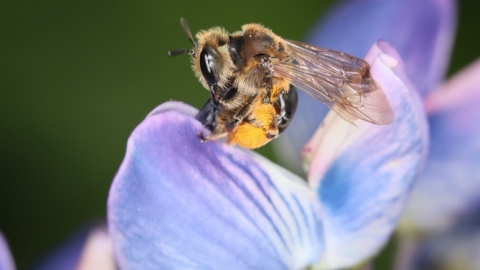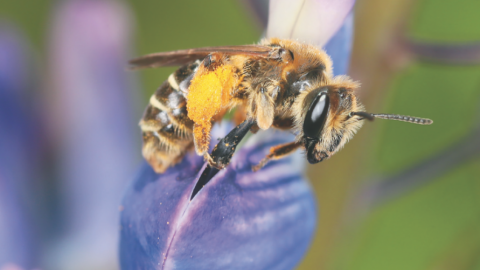Become a Part of the Pollinator Pathway!
There are countless ways, both large and small, that anyone can help protect our state’s native pollinators.
Plant native plants on your property
Visit Pollinator-Pathway.org to find ways to acquire native Connecticut plant species, then reserve part of your property for them to flourish, providing food and habitat for an incredible diversity of native pollinators.
Avoid using pesticides and herbicides
These may kill pests, but they also kill beneficial insects that are critical to wild ecosystems, and they do serious harm to biodiversity across the environmental spectrum.
Rethink your lawn
Mow less frequently, as taller grass (even slightly taller!) provides better insect habitat and helps the lawn resist drought. Let part of your lawn “go wild” (a mini-meadow), and you may be surprised to find wildflowers emerge that you never knew were there.
Leave the leaves (especially in autumn)
Most native insects hibernate in the winter, but without dead leaf or dead tree cover, they have no place to hide, nor anyplace to overwinter. If you’re able to leave the leaves, at least somewhere on your property, you’ll provide winter habitat for numerous species. Dead leaves also protect the ground from wind and rain erosion and compost into the earth, safeguarding and enriching your soil for spring plantings.
Get on the map!
Add your property, a town garden, or a pesticide-free open space in your town to the Pollinator-Pathway.org map of private and public way-stations, then watch the pathway grow.








